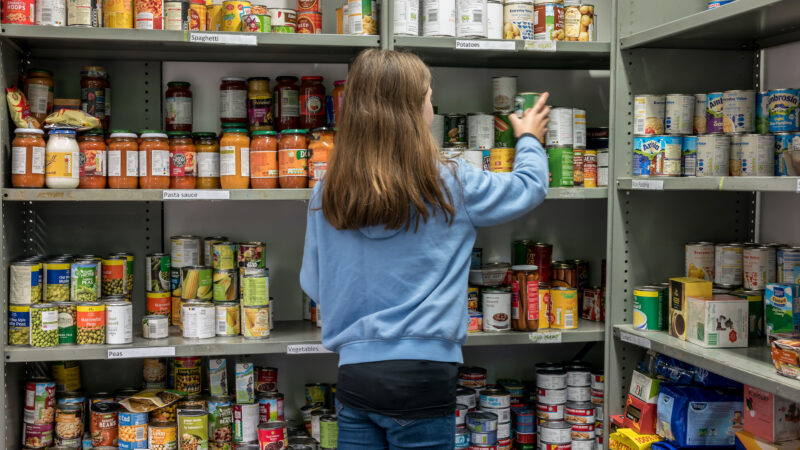
Food policy has been overlooked by government for too long. The coronavirus outbreak is showing that the supply of food to our supermarket shelves and workers to our farms is not as solid as we would like. And it’s exposing the reality of hidden poverty and hidden hunger. We need to thoroughly look again at our relationship with food. Not just in light of growing poverty, the climate crisis, but also because the virus outbreak has shone a spotlight on an under-appreciated and fragile part of our economy.
Up and down the country, emergency food provision is providing a lifeline to individuals and families in lockdown, self-isolation or in the clutch of food poverty. I want to be absolutely clear: food banks should not exist. No industrialised society should need to give out food to people who are hungry. But the decade of austerity has embedded and normalised food banks in government policy.
The expansion of Universal Credit is a huge contributor to the growth in food bank usage. One million people have applied for the benefit in the last two weeks in response to the Covid-19 outbreak and the shutdown of huge parts of our economy. Not everyone who applied this time will be the same as those who were migrated to it pre-virus, but what it does show is how precarious and fragile the circumstances of so many people are. We can prudently predict a massive surge in food bank usage as the cruel five-week wait pushes more and more people further and further into poverty.
In some areas, the government has listened to the case made by Labour for a change of policy and emergency measures, but it is still holding fast on Universal Credit’s five-week wait. That cannot stand – simply because there is not enough capacity in the UK food bank network. Many of the volunteers who run food banks are themselves now self-isolating, and being shielded for their own protection and ours. The DBS checks for new volunteers are still taking too long and, despite good intentions, the number of new volunteers are not yet piling into our food banks.
Donations are down as surplus food stocks diminish. The Co-op was the only supermarket to maintain their donations throughout the crisis, although the big chains are now back in gear and donating huge sums to the emergency food sector. But with one million new claims for Universal Credit, expecting people to endure over a month without financial support, or taking out loans that will slash their support in the future, on top of paying back any government welfare debts, we know food bank use will only surge upwards.
That is why ministers should look seriously at scrapping the five-week wait, ensuring people get the support that they are entitled to immediately. They need to ensure there is commensurate support provided for emergency food provision. The answer in politics is rarely this or that, it is always ‘and’ – and this measure, and this measure. That is true here.
People were starving in Britain before the virus, and people remain starving during the virus. We must do all we can at this time of incredible national challenge to rise to the occasion. We need to remove the obstacles that force people further into poverty, into hunger, and deprives children and the most vulnerable of the good, nutritious food that they need.
Many of those who will be going to a food bank for the very first time in the coming weeks were in work until the virus hit. Many will not have used one before, and most will not be one of the 1.5 million on the government’s vulnerable people list. That is why we need a drastic change of direction here. In the spirit of helping the government make the right choices, I am urging ministers to reconsider so that everyone has the food that they need at this time of great crisis.




More from LabourList
‘Tackling poverty should be the legacy of Keir Starmer’s government’
‘The High Court judgment brings more uncertainty for the trans community’
‘There are good and bad businesses. Labour needs to be able to explain the difference’